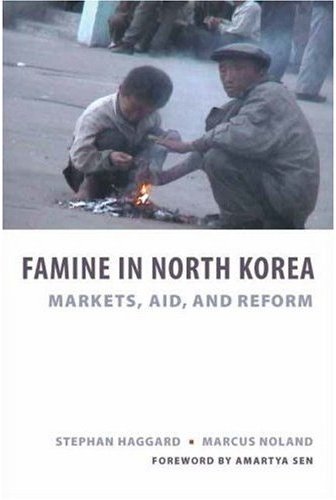Bloomberg
Bradley Martin
11/2/2007
Fabien Pictet & Partners Ltd., a British money manager that specializes in emerging markets, plans to establish a fund focused on joint ventures in North Korea.
Fabien Pictet has applied to North Korea’s embassy in London for permission to visit Pyongyang to explore opportunities, Chief Executive Officer Richard Yarlott said in an interview. The closely held firm initially would buy into South Korean companies doing business in the north, he said.
“It would be very difficult to put more than $50 million directly into North Korea,” said Yarlott, 47, who helps manage $750 million of bonds and equities. “But it would be very easy to put $500 million into listed South Korean companies and then later, as we see specific private equity opportunities, go with them.” He declined to give further details.
A North-South agreement on economic cooperation, signed Oct. 4, may foster cross-border projects in industries such as mining and shipbuilding. Still, that prospect isn’t enough to lure billionaire investor Warren Buffett to a northern plunge.
“Things would have to change a whole lot before we can make investments,” said Buffett, chairman and CEO of Berkshire Hathaway Inc., during a visit to South Korea last week.
Buffett, who owns shares of South Korea’s Posco, Asia’s biggest steelmaker by market value, rates the nation’s stocks as “modestly cheaper” than most around the world. The benchmark Kospi index’s price-to-earnings multiple of 15.4 for current year estimated earnings is the lowest in Asia-Pacific after Thailand.
London-based Fabien Pictet, set up in 1998, invests in countries from Brazil to the Ukraine.
It started a South Korean equity fund, Three Kingdoms Korea Fund Inc., in 2004 partly to be ready for a northern push, Yarlott said.
LG Corp., Hyundai
South Korean companies — including units of LG Corp., the country’s fourth-largest industrial group, and Hyundai Corp. — have $2 billion to invest over the northern border, he said.
Three Kingdoms Korea has had a total return of 88.5 percent from April 30, 2004, to Sept. 28 this year. South Korea’s Kospi has risen 126 percent in the same period.
Foreign investment in North Korea has been legal since 1984 and repatriation of profits since 1992. The country doesn’t permit private ownership of assets and hasn’t established a stock exchange.
South Korea’s closely held Hyundai Asan Corp., which started a northern tourism business in 1998, has been reported to be struggling to avoid or reduce operating losses.
London-based Anglo-Sino Capital Partners Ltd., which in 2005 created Chosun Development and Investment Fund to focus on direct investment in North Korea, last month doubled its investment target, citing strong interest.
“We have raised the fund from $50 million to $100 million,” Colin McAskill, chairman in London of Koryo Asia Ltd., the Chosun fund adviser, said in an interview.
The fund will concentrate on direct transactions with North Korean companies that have been active internationally and have track records as foreign currency earners, he said.
Some investors say it’s too early to call North Korea an emerging market.
“I’m 77 years old and the thought that the day would come in my time — it’s very flattering but it’s a long way off,” said Buffett, also known as the “Sage of Omaha.”
Yarlott said the country was changing. “North Korea, like China, will develop a stock market,” he said.
“At this rate, even the sage will get a look-in.”

